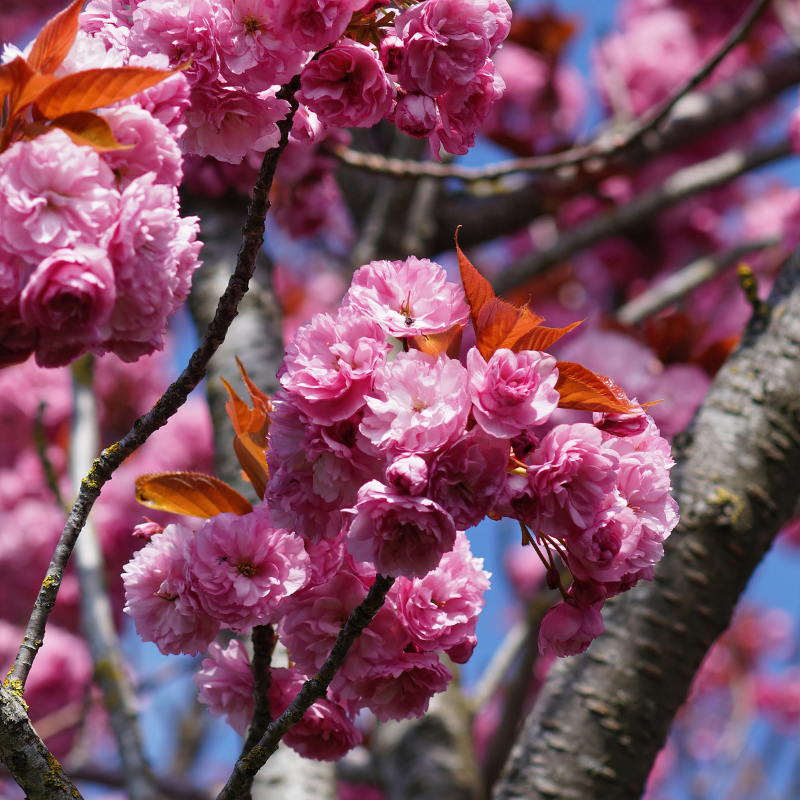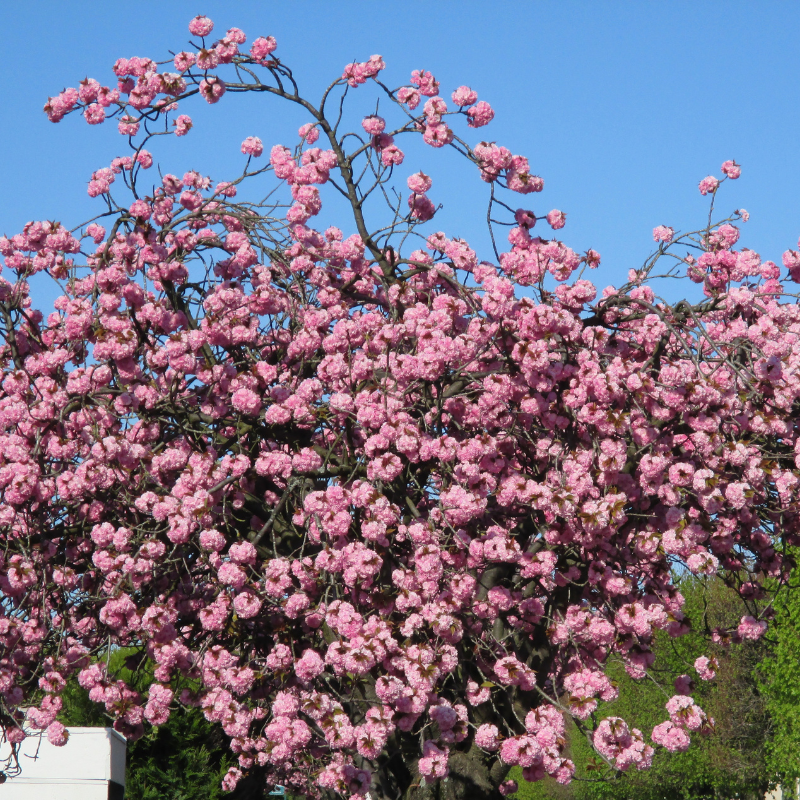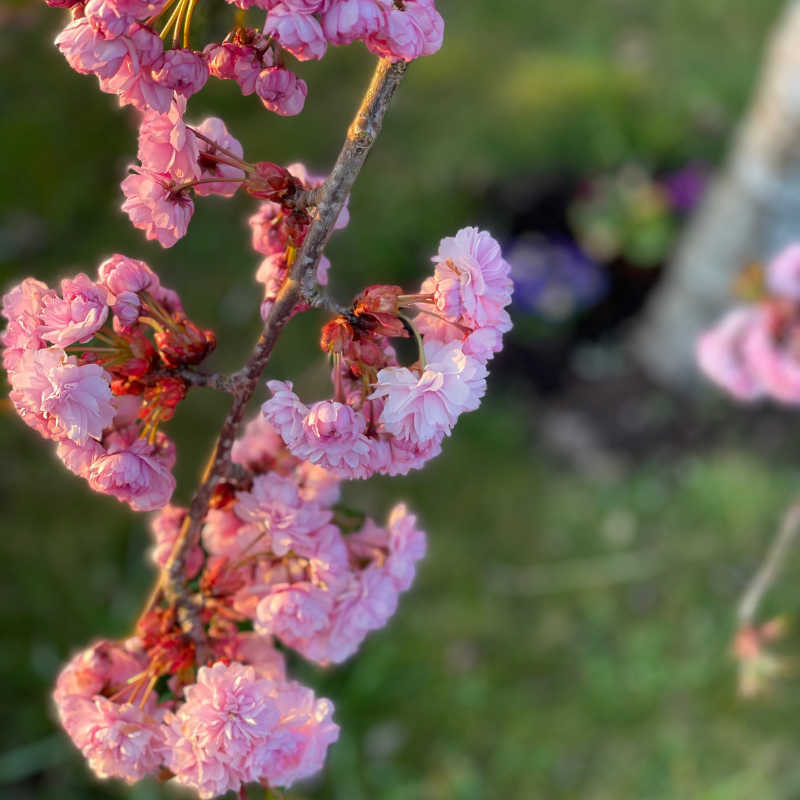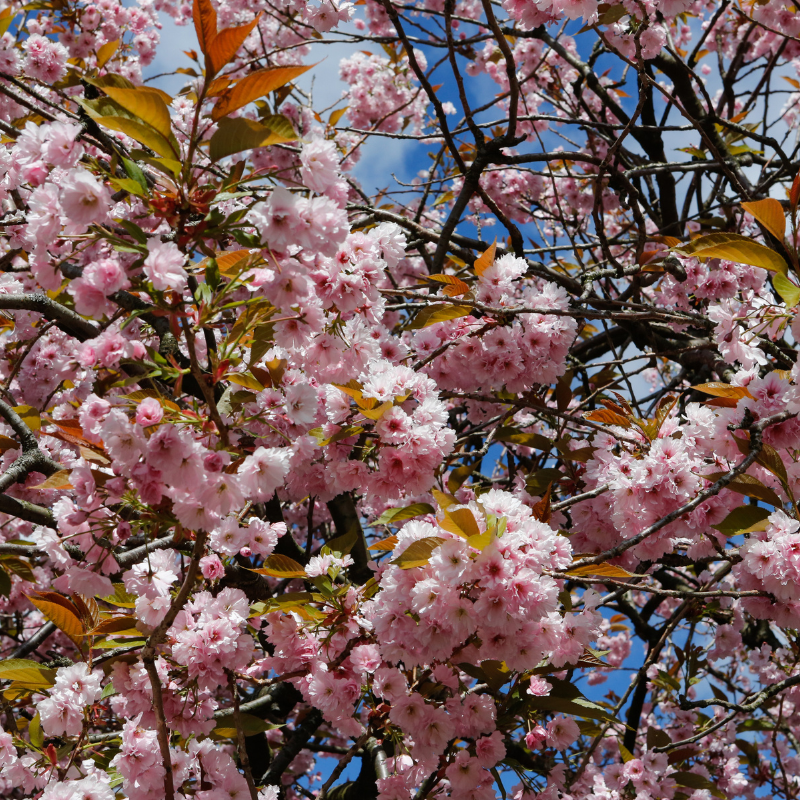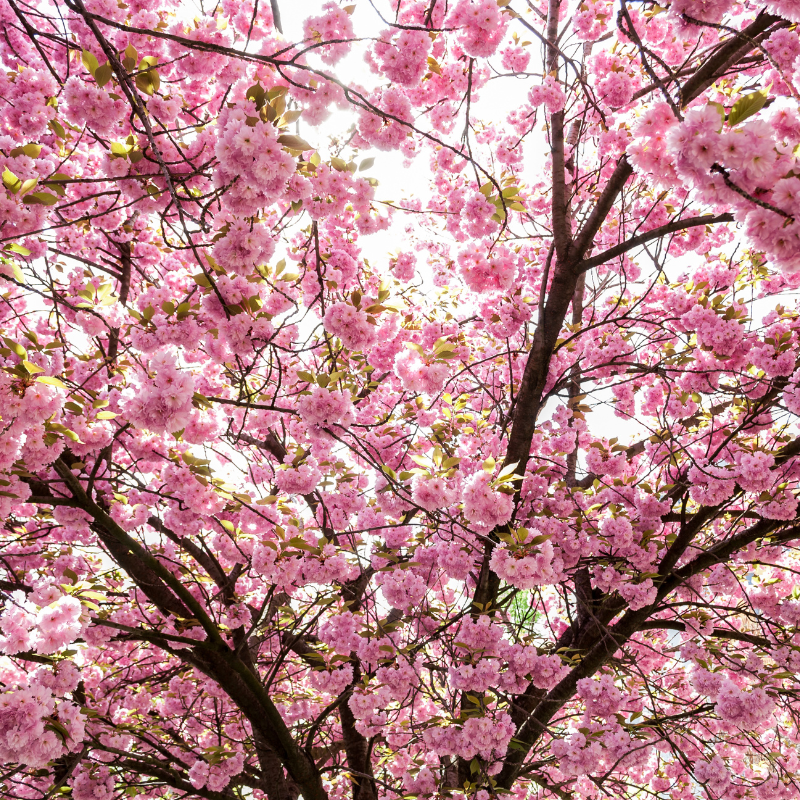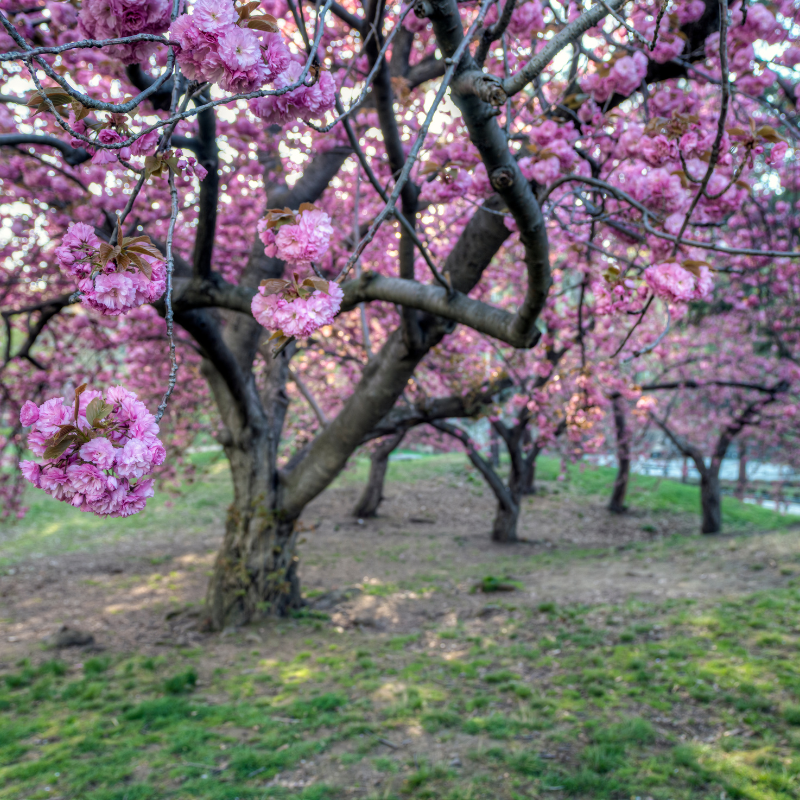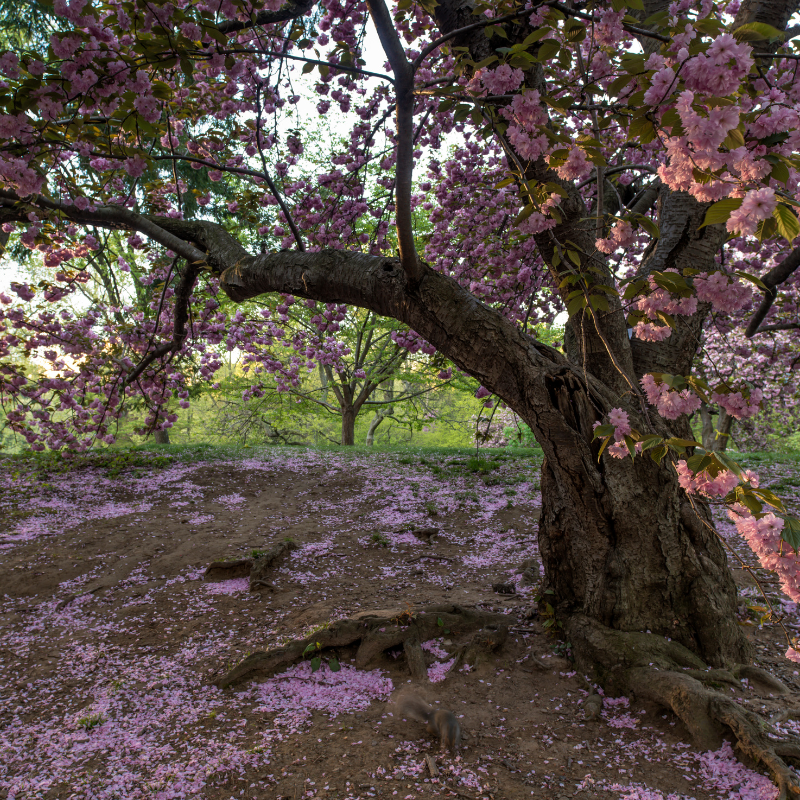Prunus serrulata Seeds (Japanese Cherry, Sakura, Ornamental Cherry)
Description:
Prunus serrulata, commonly known as Japanese Cherry or Sakura, is an iconic deciduous tree celebrated for its breathtaking spring blossoms. Native to Japan, Korea, and China, this ornamental cherry tree is a symbol of beauty and renewal, often associated with traditional Japanese culture. With its stunning pink or white flowers and attractive foliage, Prunus serrulata is a prized addition to gardens, parks, and landscapes worldwide.
Key Features:
• Tree Characteristics:
• Medium-sized deciduous tree, reaching 5–12 meters in height.
• Features a rounded canopy with spreading branches, creating a graceful appearance.
• Leaves are ovate, serrated, and turn shades of orange, red, and yellow in autumn.
• Flowers:
• Produces clusters of double or single flowers in shades of pale pink to white.
• Blooms in early to mid-spring, creating a spectacular floral display.
• The blossoms are fragrant and attract pollinators, adding life to the garden.
• Fruits:
• Small, dark cherries that are not typically consumed due to their tart flavor.
• Provides food for birds and small wildlife.
• Hardiness:
• Thrives in temperate climates and tolerates cold winters and mild summers.
• Prefers sheltered locations protected from strong winds.
Cultivation Instructions:
• Climate Requirements:
• Best suited for temperate climates with cool winters and moderate rainfall.
• Requires full sun to partial shade for optimal growth and blooming.
• Soil Preference:
• Prefers well-drained loamy or sandy soils with a pH of 6.0–7.0.
• Tolerates less fertile soils but benefits from organic amendments for better flowering.
• Planting Instructions:
• Stratify seeds by placing them in moist sand or peat and refrigerating at 4°C for 8–12 weeks before planting.
• Sow seeds in spring, 2–3 cm deep, in a sunny or partially shaded location.
• Space trees 4–6 meters apart to allow proper canopy development.
• Watering:
• Water regularly during the first few years, keeping the soil evenly moist but not waterlogged.
• Once established, the tree is moderately drought-tolerant but benefits from supplemental watering during dry spells.
• Pruning:
• Prune in late winter or early spring to shape the tree and remove dead or overcrowded branches.
Uses and Benefits:
• Ornamental:
• Renowned for its spring blossoms, Prunus serrulata adds elegance to gardens, parks, and streetscapes.
• Its autumn foliage further enhances its ornamental appeal.
• Cultural Significance:
• Symbolizes renewal, beauty, and the fleeting nature of life in Japanese culture.
• Commonly celebrated during cherry blossom festivals (Hanami).
• Wildlife Support:
• Provides food and habitat for birds and pollinators, enriching local biodiversity.
Historical Note:
Prunus serrulata has been cultivated for centuries in East Asia, particularly in Japan, where it is a cultural icon. The tradition of appreciating cherry blossoms (Hanami) dates back over 1,000 years and continues to be celebrated annually.
Shipping Information:
Deodar Seeds ensures that all seeds are carefully selected and packaged to maintain their freshness and viability. Seeds are shipped within India and internationally, with delivery typically within 1–2 weeks.
From Deodar Seeds Company.
Description:
Prunus serrulata, commonly known as Japanese Cherry or Sakura, is an iconic deciduous tree celebrated for its breathtaking spring blossoms. Native to Japan, Korea, and China, this ornamental cherry tree is a symbol of beauty and renewal, often associated with traditional Japanese culture. With its stunning pink or white flowers and attractive foliage, Prunus serrulata is a prized addition to gardens, parks, and landscapes worldwide.
Key Features:
• Tree Characteristics:
• Medium-sized deciduous tree, reaching 5–12 meters in height.
• Features a rounded canopy with spreading branches, creating a graceful appearance.
• Leaves are ovate, serrated, and turn shades of orange, red, and yellow in autumn.
• Flowers:
• Produces clusters of double or single flowers in shades of pale pink to white.
• Blooms in early to mid-spring, creating a spectacular floral display.
• The blossoms are fragrant and attract pollinators, adding life to the garden.
• Fruits:
• Small, dark cherries that are not typically consumed due to their tart flavor.
• Provides food for birds and small wildlife.
• Hardiness:
• Thrives in temperate climates and tolerates cold winters and mild summers.
• Prefers sheltered locations protected from strong winds.
Cultivation Instructions:
• Climate Requirements:
• Best suited for temperate climates with cool winters and moderate rainfall.
• Requires full sun to partial shade for optimal growth and blooming.
• Soil Preference:
• Prefers well-drained loamy or sandy soils with a pH of 6.0–7.0.
• Tolerates less fertile soils but benefits from organic amendments for better flowering.
• Planting Instructions:
• Stratify seeds by placing them in moist sand or peat and refrigerating at 4°C for 8–12 weeks before planting.
• Sow seeds in spring, 2–3 cm deep, in a sunny or partially shaded location.
• Space trees 4–6 meters apart to allow proper canopy development.
• Watering:
• Water regularly during the first few years, keeping the soil evenly moist but not waterlogged.
• Once established, the tree is moderately drought-tolerant but benefits from supplemental watering during dry spells.
• Pruning:
• Prune in late winter or early spring to shape the tree and remove dead or overcrowded branches.
Uses and Benefits:
• Ornamental:
• Renowned for its spring blossoms, Prunus serrulata adds elegance to gardens, parks, and streetscapes.
• Its autumn foliage further enhances its ornamental appeal.
• Cultural Significance:
• Symbolizes renewal, beauty, and the fleeting nature of life in Japanese culture.
• Commonly celebrated during cherry blossom festivals (Hanami).
• Wildlife Support:
• Provides food and habitat for birds and pollinators, enriching local biodiversity.
Historical Note:
Prunus serrulata has been cultivated for centuries in East Asia, particularly in Japan, where it is a cultural icon. The tradition of appreciating cherry blossoms (Hanami) dates back over 1,000 years and continues to be celebrated annually.
Shipping Information:
Deodar Seeds ensures that all seeds are carefully selected and packaged to maintain their freshness and viability. Seeds are shipped within India and internationally, with delivery typically within 1–2 weeks.
From Deodar Seeds Company.
Prunus Serrulata, Japanese Cherry, Sakura seeds - 10
- Brand: Deodar Seeds
- Product Code: FR19.1
- Availability: In Stock
₹429.00


